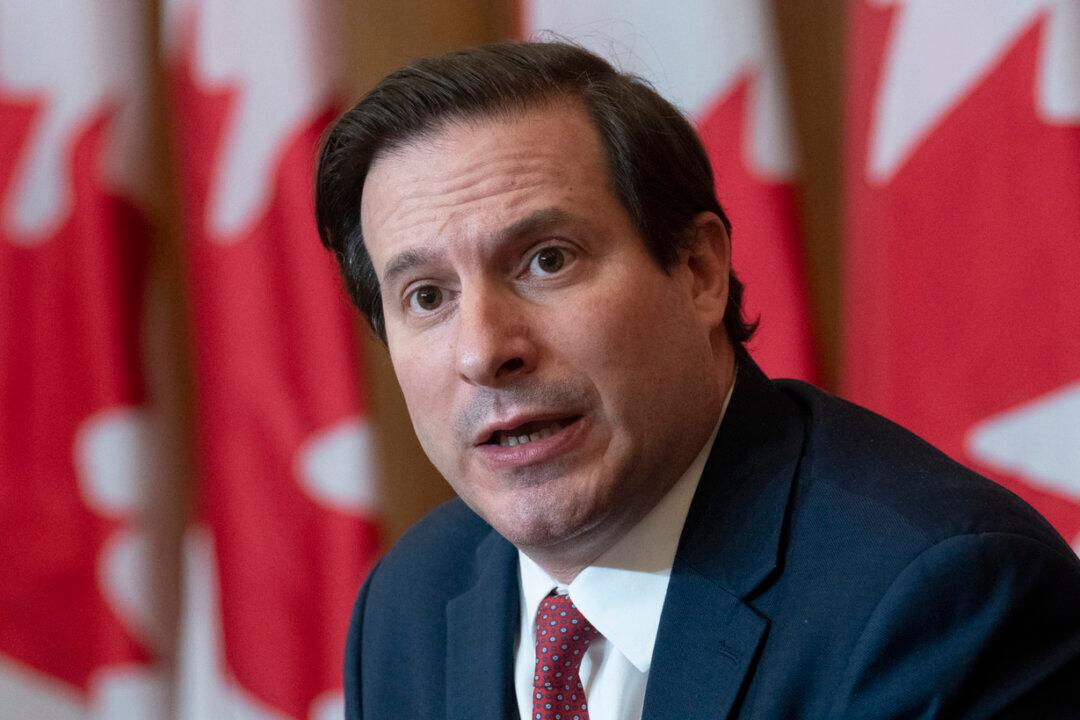Dozens of bank accounts have been frozen since the federal government invoked the Emergencies Act, Public Safety Minister Marco Mendicino said on Feb. 19.
“At least 76” accounts have been frozen, which represents $3.2 million, associated with the ongoing protest in Ottawa opposing the federal government’s COVID-19 mandates and restrictions, Mendicino said in a virtual press conference.





